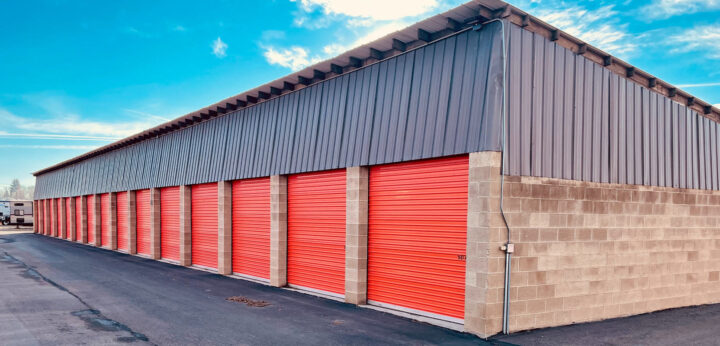Table of Contents
What does renters insurance cover in storage units?
Renters insurance, sometimes called tenant insurance or contents insurance, covers your personal property everywhere, including when it’s in a storage unit.
So if your belongings get damaged or lost when they’re stored due to a covered peril like theft or fire, your renters insurance will reimburse you.
However, your policy may feature sub-limits for personal property stored away from your home. You’ll also still have to pay part of the cost yourself when you file a claim. (This out-of-pocket cost is referred to as your renters insurance deductible.)
What if I’m moving?
Because renters insurance covers moving, any property you have in storage will be covered while you move.
If you’re moving and need to store your belongings in a storage unit, your policy will still reimburse you for any damage or loss to your (stored) items up to the sub-limit. Just make sure to update your home address with your insurer within 30 days, as your policy will only cover both rental homes for a maximum of 30 days.
Similarly, renters insurance also covers you when you travel and stay elsewhere temporarily. You won’t need to get short-term renters insurance, but if you’re staying somewhere for more than 30 days, just let your insurer know.
What are the coverage limitations?
Renters insurance covers personal property in storage units at a coverage limit of 10% of your personal property coverage.
If your renters insurance policy covers $80,000, you would be insured up to $8,000 for any damages to your items in storage.
An exception to this sub-limit is when your home is undergoing renovation or is being repaired and rebuilt. If your home becomes uninhabitable and you have to move your personal property to a storage facility, there won’t be a sub-limit to the coverage for your items.
How to add additional self-storage coverage
There are two ways to increase your self-storage coverage: by adding endorsements to your renters insurance policy or by purchasing separate self-storage insurance.
1. Add endorsements to your renters insurance
Endorsements, also known as riders, are add-on policies you can purchase to expand your personal property coverage.
Common endorsements to add to your policy to cover your off-premise property:
- Scheduled property rider: This allows for an increased coverage limit of a particular type of item, usually high-value belongings like furs and antiques. For instance, if you have $30,000 of personal property coverage, your property will only be insured up to 10% of that ($3,000). If you have a collection of antiques in your storage unit worth $5,000, you might want to buy this rider to fully cover them.
- Floaters: If you have some items that are particularly expensive, floaters allow you to increase the coverage limit for that specific possession without requiring you to schedule that entire category of items. For example, if you own only one very expensive fur coat and don’t have an entire collection, you can just purchase a floater for that item.
2. Purchase separate self-storage insurance
Storage facilities may require you to have some sort of insurance coverage before they agree to store your belongings.
Besides the coverage offered by your renters insurance, you can also purchase a separate self-storage insurance plan from your storage company if you find that your policy doesn’t provide adequate coverage.
Similar to an endorsement, purchasing separate storage unit insurance can raise your coverage limits and help fill any gaps left by your renters insurance, such as adding a policy that covers commonly excluded perils like floods.
Related Questions
- What is guest medical coverage in renters insurance?
- What is a sub-limit in renters insurance?
- Does renters insurance cover home-based businesses?
- Does renters insurance cover gold or silver bullion?
- What does "dependent in the care of" mean in renters insurance?
- Does State Farm renters insurance cover hotel stays?






